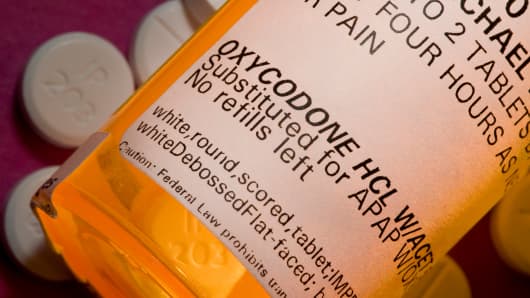The declaration's real impact will be first to raise already strong awareness of the immensity of the problem and then to transform the response from sorrow to outrage.
The facts are staggering. According to the American Society of Addiction Medicine, drug overdose has become the leading cause of accidental death in the U.S., driven by the opioid epidemic. Of the 52,404 lethal drug overdoses in 2015, 20,101 of them were related to prescription pain relievers. In 2012 alone, 259 million prescriptions were written for opioids, which is more than enough to give every American adult their own bottle of pills.
President Trump could use the emergency declaration and the resulting outrage to push Attorney General Jeff Sessions to join and support the growing number of states and cities suing the drug companies, drug distributors and even drug store chains over opioid sales. That would give those cases the full weight and financial resources of the Justice Department and increase the chances of a big settlement.
And it gets worse. The lawsuits popping up in statehouses across the country blame the pharmaceutical industry for fueling this crisis with misleading data and a just plain unethical push to convince doctors to prescribe opioids in huge numbers. Mylan, Johnson & Johnson, and Teva Pharmaceuticals seem to know very well they are selling far more of their product than can be reasonably used to fight pain legitimately.
And as mentioned above, it's not just the drug makers. CVS, Walgreens, and Walmart and drug distributors like McKesson and Cardinal Health have also been named in some lawsuits for flooding certain areas of the country with opioid supplies purely for profit reasons and not because of higher instances of physical pain in those regions.
How much could this end up costing all these companies? In addition to the stock price hits mentioned above, many are comparing the drug company and drug distributor conduct on this issue to the way big tobacco covered up evidence of nicotine's addictive powers. The tobacco companies ended up paying dearly for that, to the tune of $206 billion dollars over the first 25 years of a settlement it made with the attorneys general of 46 states in 1998.
So many states are dealing with the enormous cost of treating opioid addiction and the tangential costs of fighting other crimes connected to it, that they have little or nothing to lose in fighting for as hefty a settlement as possible. And a national emergency declaration could go a long way toward getting more juries and judges on the side of the plaintiffs in court or a settlement battle.
When he was first elected, President Trump injected some fear into the hearts of the drug industry when he promised to do something about high drug prices. He even repeated that attack on the pharma companies earlier this week. But this emergency declaration could be more harmful than price controls. Because caregivers were pushed so hard by pharma reps and others to dole out opioids, the entire industry's practice of heavily lobbying doctors and hospitals to prescribe certain drugs could be severely curbed with new regulations. That would mess with a business model that has enriched the industry for years, not unlike the way curbing tobacco advertising has disrupted the cigarette makers over the past 47 years.
Even before the opioid crisis began, many critics inside the medical community called for a stop to the drug company sales tactics. And just to give you an idea of how much the drug industry values sales and advertising, the fact is that Big Pharma spends more on that than on actual drug research and development.
But before you get out your pitchfork and torch, remember that we're not talking about an industry without inherent value to society. The drug companies still sell life-saving products to millions of people every day. Putting them out of business or severely regulating them could lead to shortages and a significant slowdown in the discovery of newer and better treatments.
The best case scenario is putting a cap on the number of opioids available to the public, punishing those found to have deliberately flooded the market, and taking a serious look at cutting out the harmful aspects of drug sales practices.
Of course, the government's track record of acting that wisely and avoiding throwing the baby out with the bathwater in crisis situations is just plain bad. That's true no matter what party or president controls Congress or sits in the Oval Office. It's that kind of history that should leave the drug industry shaking with real worry right now.
But I guess they have a drug for that.
Commentary by Jake Novak, CNBC.com senior columnist. Follow him on Twitter @jakejakeny.
For more insight from CNBC contributors, follow @CNBCopinion on Twitter.






